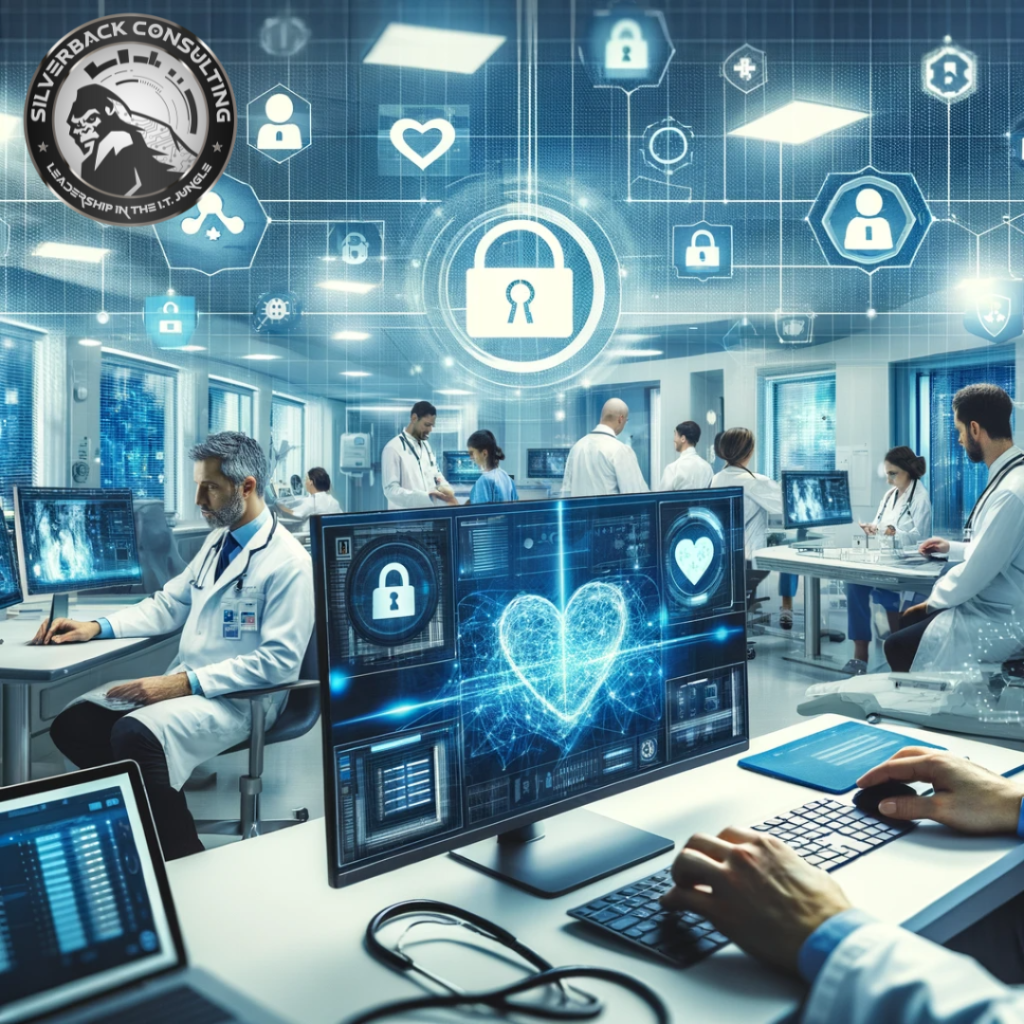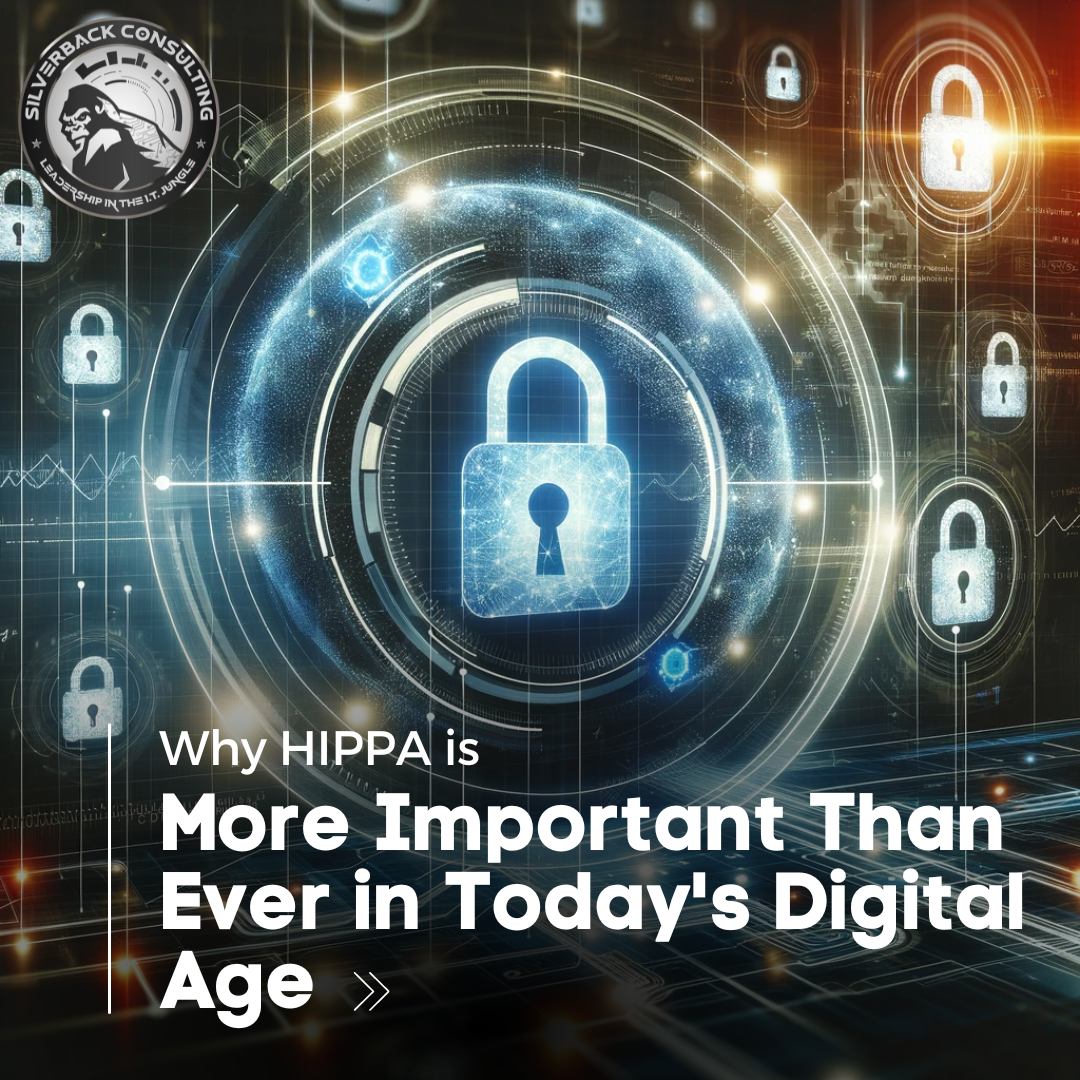Introduction
In an era where digital data is proliferating at an unprecedented rate, the importance of the Health Insurance Portability and Accountability Act (HIPAA) has magnified significantly.
As custodians of sensitive health information, it is crucial for healthcare providers and associated entities to recognize the vital role HIPAA plays in safeguarding patient data.
This article delves into the nuances of HIPAA, exploring its increased relevance in the current digital landscape and why HIPAA is more important than ever in today’s digital age.
Understanding HIPAA: A Brief Overview

HIPAA, enacted in 1996, is a critical piece of legislation designed to protect patient health information. It sets forth a framework for the privacy and security of protected health information (PHI), ensuring that healthcare providers, health plans, and healthcare clearinghouses maintain the confidentiality, integrity, and availability of PHI.
The Rise of Electronic Health Records (EHRs) and HIPAA’s Role
With the shift from paper-based to electronic health records (EHRs), HIPAA’s role has become more crucial. EHRs offer numerous benefits, including improved patient care and efficient data management.
However, they also pose significant risks if not properly secured. HIPAA’s Security Rule mandates administrative, physical, and technical safeguards to protect EHRs, ensuring that only authorized personnel have access to sensitive patient data.
Increased Cybersecurity Threats and HIPAA Compliance
The digital age has seen a surge in cybersecurity threats, with healthcare data being a prime target for cybercriminals.
HIPAA compliance is not just a legal requirement but a necessity to protect against data breaches and cyber-attacks. Adherence to HIPAA’s stringent security measures can significantly mitigate the risk of unauthorized access to PHI.
HIPAA and Patient Trust: The Indispensable Link
Patient trust is the cornerstone of the healthcare system. HIPAA plays an indispensable role in building and maintaining this trust.
By ensuring the confidentiality and security of health information, HIPAA fosters a secure environment where patients feel confident sharing their sensitive data, essential for accurate diagnosis and effective treatment.
Navigating the Complexities of HIPAA Compliance
Achieving HIPAA compliance can be challenging, given its complex requirements. Healthcare entities must conduct regular risk assessments, implement appropriate security measures, and ensure ongoing staff training.
Compliance is not a one-time event but a continuous process that requires vigilance and adaptation to evolving threats and regulations.
The Impact of HIPAA on Telemedicine and Digital Health Services
The rise of telemedicine and digital health services has further underscored the importance of HIPAA. As healthcare delivery increasingly moves online, ensuring HIPAA compliance in digital platforms is critical.
Telemedicine providers must implement robust security protocols to protect PHI transmitted across digital channels.
HIPAA Violations: Consequences and Prevention
Healthcare entities must take proactive steps to prevent such violations, including regular staff training, ensuring business associates are HIPAA-compliant, and promptly addressing any potential security incidents.
The Future of HIPAA in the Age of AI and Big Data
As healthcare continues to evolve with advancements in AI and big data, HIPAA will continue to play a pivotal role.
These technologies offer immense potential for enhancing patient care but also raise new privacy and security concerns.
Adapting HIPAA regulations to address these emerging technologies will be critical for their safe and ethical use in healthcare.
Enhancing Data Privacy and Security in Healthcare
In the ever-evolving landscape of healthcare, enhancing data privacy and security remains a top priority.
HIPAA, as a regulatory framework, is central to these efforts. It guides healthcare organizations in adopting advanced security measures and protocols that are imperative in protecting sensitive patient data against unauthorized access and breaches.
HIPAA’s Influence on Healthcare Innovations
Innovations in healthcare technology, such as wearable health devices and personalized medicine, are reshaping patient care.
HIPAA’s influence extends to these innovations, ensuring that as healthcare becomes more integrated with technology, patient data remains secure and private.
Compliance with HIPAA regulations is essential in the development and deployment of these technologies, guaranteeing that innovation does not come at the cost of patient privacy.
The Role of HIPAA in Health Information Exchanges
Health Information Exchanges (HIEs) play a critical role in the interoperability of healthcare systems, facilitating the efficient sharing of patient data.
HIPAA directly influences the operations of HIEs by setting standards for the secure exchange of PHI. This ensures that patient data is shared in a manner that is both efficient and compliant with privacy and security regulations.
Adapting to Global Privacy Standards: HIPAA’s Global Impact
While HIPAA is a U.S.-specific regulation, its principles and standards have a global impact. With the rise of global data exchange in healthcare, HIPAA serves as a benchmark for many international data privacy and security standards.
Healthcare organizations worldwide look to HIPAA as a model for implementing robust data protection measures in their operations.
The Intersection of HIPAA and Patient Rights
Beyond protecting patient data, HIPAA is instrumental in empowering patients with rights over their health information. This includes the right to access their health records, request amendments, and obtain an account of disclosures.
These rights are crucial in promoting patient engagement and involvement in their healthcare, further strengthening the patient-provider relationship.
Ensuring Compliance: A Strategic Imperative for Healthcare Entities
For healthcare organizations, ensuring HIPAA compliance is a strategic imperative. It requires a comprehensive approach that includes regular training, effective data management strategies, and a culture of compliance.
By prioritizing HIPAA compliance, healthcare entities not only adhere to legal requirements but also demonstrate their commitment to patient care and trust.
HIPAA in the Era of Health Data Analytics
The burgeoning field of health data analytics offers tremendous opportunities for advancing healthcare. HIPAA plays a critical role in this domain by providing guidelines for the use of PHI in analytics.
By ensuring that data analytics practices comply with HIPAA, healthcare organizations can leverage data insights while upholding the highest standards of data privacy and security.
Preparing for the Future: Ongoing Evolution of HIPAA
As technology and healthcare practices continue to evolve, so too must HIPAA. Staying ahead of emerging trends and potential threats is essential. This includes adapting HIPAA regulations to accommodate new technologies and practices, ensuring that the act remains relevant and effective in the ever-changing healthcare landscape.
Why HIPAA Matters More Than Ever: Conclusion

Why HIPAA Matters More Than Ever: Conclusion
In conclusion, HIPAA is more relevant today than ever before. In the digital age, where data breaches are increasingly common, HIPAA serves as a crucial safeguard, protecting sensitive health information and maintaining patient trust.
For healthcare providers and associated entities, understanding and adhering to HIPAA is not just a legal obligation but a fundamental aspect of responsible healthcare delivery.
FAQS
What is HIPAA and why is it important?
HIPAA, the Health Insurance Portability and Accountability Act, is a United States legislation that provides data privacy and security provisions for safeguarding medical information. It’s crucial because it ensures the confidentiality and security of patient health information.
What is considered Protected Health Information (PHI) under HIPAA?
PHI under HIPAA includes any information in a medical record that can be used to identify an individual, and that was created, used, or disclosed in the course of providing a health care service, such as diagnosis or treatment.
Who needs to comply with HIPAA?
HIPAA compliance is required for covered entities and business associates. Covered entities include healthcare providers, health plans, and healthcare clearinghouses. Business associates are individuals or entities that perform activities involving the use or disclosure of protected health information (PHI) on behalf of, or providing services to, a covered entity.
What are the penalties for violating HIPAA?
Penalties for HIPAA violations can range from fines to criminal charges, depending on the severity of the violation. Fines can reach up to $50,000 per violation, with a maximum annual penalty of $1.5 million. Criminal charges can result in jail time, especially in cases of intentional misuse or theft of PHI.
How does HIPAA affect patients’ rights?
HIPAA grants patients several rights concerning their health information, including the right to access their health records, request corrections to their records, and receive a report on how their information is used and disclosed.
How has HIPAA adapted to the digital age?
HIPAA has evolved to address the challenges of the digital age, including the adoption of the Security Rule, which sets standards for protecting electronic PHI. It also addresses issues related to electronic transmissions and storage of PHI, ensuring that patient data is safeguarded against digital threats.
What is a HIPAA risk assessment?
A HIPAA risk assessment is a thorough evaluation carried out by a covered entity or business associate to identify the risks and vulnerabilities to the confidentiality, integrity, and availability of electronic PHI. This assessment is crucial in developing adequate security measures to protect PHI.
Can patients waive their HIPAA rights?
Patients cannot waive their HIPAA rights entirely, but they can consent to certain uses or disclosures of their PHI. However, healthcare providers are still bound by HIPAA to protect patient information even when consent is given for specific disclosures.
How does HIPAA apply to telehealth services?
HIPAA applies to telehealth services by regulating how PHI is transmitted and stored during telehealth sessions. Providers offering telehealth services must implement security measures to protect PHI transmitted electronically and ensure compliance with HIPAA regulations.
What role does HIPAA play in medical research?
In medical research, HIPAA protects the privacy of individuals’ health information while allowing researchers to access and use the data necessary for advancing medical knowledge. Researchers must adhere to specific criteria set forth by HIPAA when using PHI.
Protect Your Patients. Protect Your Business.
HIPAA violations can cost more than money—they can damage trust, reputation, and operations. We guide medical practices, SMBs, and non-profits through every step of compliance, ensuring sensitive data stays secure and your organization stays protected.
🛡 Don’t wait for a breach to find out you’re not compliant.
Start safeguarding your business and patient data today. Call us today at (719) 452-2205 or fill out the form below.
Silverback Consulting
303 South Santa Fe Ave
Pueblo, CO 81003
719-452-2205
support@silverbackconsulting.us
“Leadership in the I.T. Jungle”




